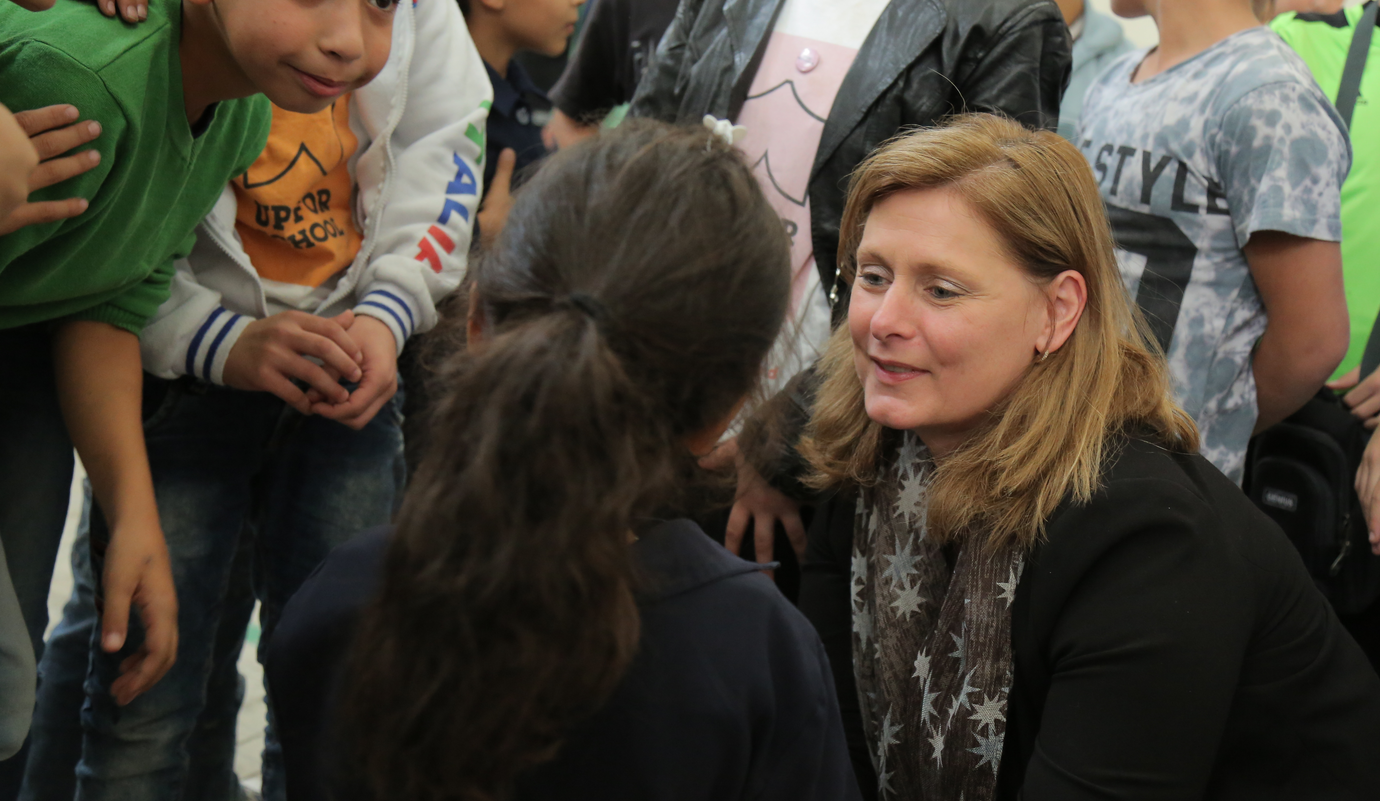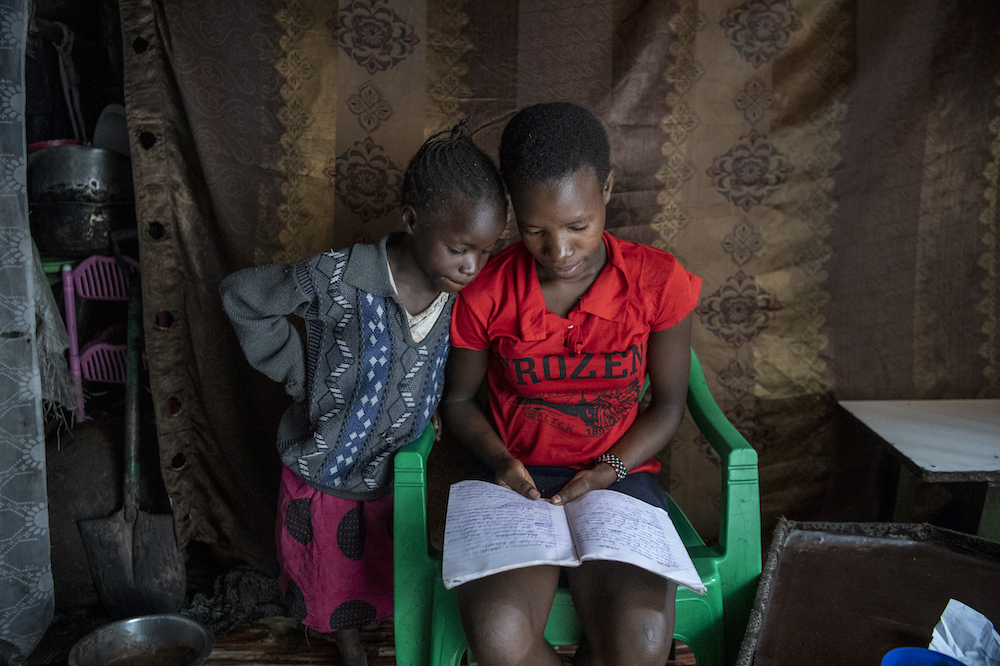
Shanty town school educates the children of Cairo’s ‘garbage people’
Barriers to education, Right to education
Many of the children who attend Mahaba School are malnourished and their parents struggle to buy them clothes and school supplies.
Among the poorest of Egypt’s poor, the so-called “zabbaleen” who scavenge through garbage to eke out a living in a Cairo slum struggle to keep their children in school.
Residents of the Ezbet al-Nakhl shanty town earn a living from rubbish they collect across the capital and sort in privately-owned recycling workshops.
But a school in the midst of the unpaved muddy alleys in the mostly Coptic district of the zabbaleen, meaning the garbage people in Arabic, has long been something of an oasis.
Set up 30 years ago by French nun Sister Emmanuelle, the Mahaba School – taking its name from the Arabic word for love – shields around 3000 pupils from the outside world in a clean and friendly environment.
The walls of its classrooms are brightly decorated with pupils’ work and football posts with a net stand proudly in the playground.
The Vatican once compared Sister Emmanuelle to Mother Teresa for her charitable work with slum dwellers. The founder died 10 years ago at the age of 99 and the school is now run by Sister Demiana.
Sister Demiana recalls how she and Sister Emmanuelle went door to door urging parents to enrol their children in a bid to fight illiteracy.
Today around 20% of Egypt’s population are illiterate, the state-run CAPMAS statistics office said in a report released last year.
Mahaba and other slum-based education initiatives have found it especially hard to make ends meet in recent years, due to a financial crisis in Egypt.
Authorities have imposed harsh austerity measures, including hikes to fuel and electricity prices, and adopted VAT. Consumer prices have soared and the Egyptian pound has lost more than half its value against the US dollar since the central bank floated the currency in November 2016.
Many of the children who attend Mahaba School are malnourished and their parents struggle to buy them clothes and school supplies, said Sister Demiana.
Mahaba charges the equivalent of $167 in annual school fees. But the poorest families do not have to pay, while those who are slightly less poor pay only a token amount.
The school is part-funded by Asmae – the NGO set up by Sister Emmanuelle in 1980 that sponsors 200 pupils. But Mahaba also depends on private contributions.
Life has become very expensive and families are finding it hard to keep their children in school. Sabah Sobhi, teacher at Mahaba School
“The main challenge is (for the parents) to find money” to pay for their general needs, said school teacher Sabah Sobhi, who has worked at Mahaba since it first opened.
“Life has become very expensive and families are finding it hard to keep their children in school,” she said.
Fear is another major worry, Sobhi said. Egypt has been shaken by political and security instability since the 2011 revolt that toppled former president Hosni Mubarak, including deadly attacks claimed by the Islamic State group.
Extremists have hit several targets in Egypt in recent years, including Coptic churches and institutions.
Mahaba has set up a psychological support”system for pupils who have been traumatised by violence, she said.
“We fear for the future and because of the events that we have experienced,” said Sobhi.
More news

